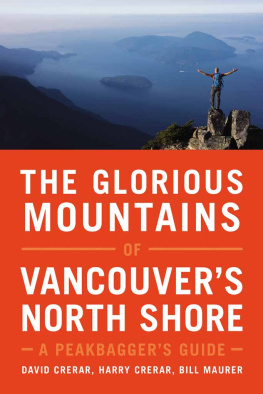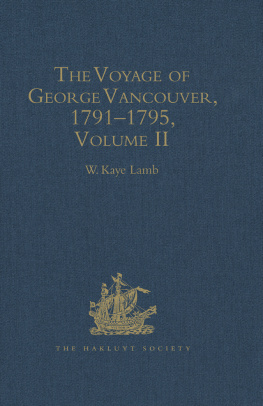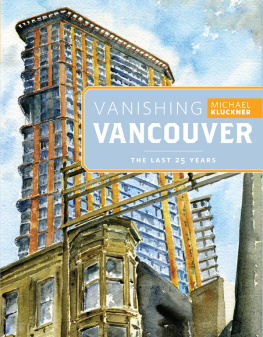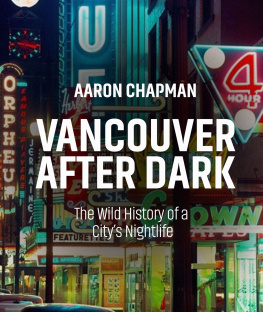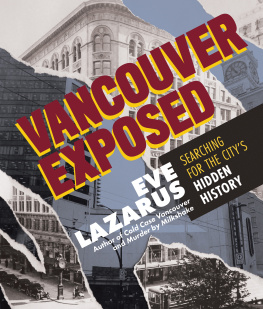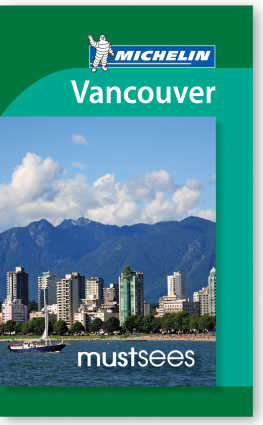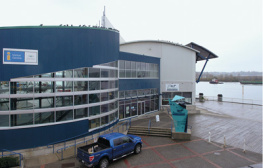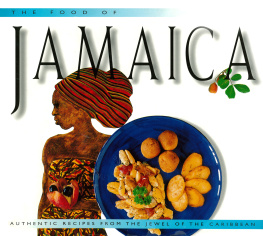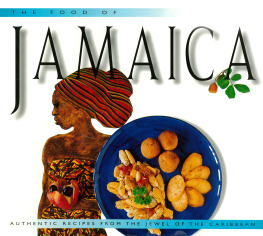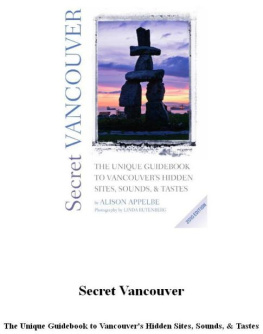Charles Demers - Vancouver Special
Here you can read online Charles Demers - Vancouver Special full text of the book (entire story) in english for free. Download pdf and epub, get meaning, cover and reviews about this ebook. year: 2009, publisher: Arsenal Pulp Press, genre: Detective and thriller. Description of the work, (preface) as well as reviews are available. Best literature library LitArk.com created for fans of good reading and offers a wide selection of genres:
Romance novel
Science fiction
Adventure
Detective
Science
History
Home and family
Prose
Art
Politics
Computer
Non-fiction
Religion
Business
Children
Humor
Choose a favorite category and find really read worthwhile books. Enjoy immersion in the world of imagination, feel the emotions of the characters or learn something new for yourself, make an fascinating discovery.

- Book:Vancouver Special
- Author:
- Publisher:Arsenal Pulp Press
- Genre:
- Year:2009
- Rating:3 / 5
- Favourites:Add to favourites
- Your mark:
- 60
- 1
- 2
- 3
- 4
- 5
Vancouver Special: summary, description and annotation
We offer to read an annotation, description, summary or preface (depends on what the author of the book "Vancouver Special" wrote himself). If you haven't found the necessary information about the book — write in the comments, we will try to find it.
Vancouvers past, present, and future, in words and photographs.
Vancouver Special — read online for free the complete book (whole text) full work
Below is the text of the book, divided by pages. System saving the place of the last page read, allows you to conveniently read the book "Vancouver Special" online for free, without having to search again every time where you left off. Put a bookmark, and you can go to the page where you finished reading at any time.
Font size:
Interval:
Bookmark:
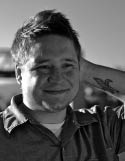
Charles Demers was born and raised in Vancouver. He is an activist and comedian, a regular performer on CBC Radio Ones The Debaters, and co-host of Citytvs comedic panel show The Citynews List in Vancouver.
In 2005, he was the judges choice for Vancouvers funniest new comic; since then he has been featured on national radio, in print, as well as in festivals and live venues across Canada and the Pacific Northwest and with Paul Bae as the sketch duo Bucketthe act Robin Williams called the future of comedy. His first novel, The Prescription Errors, was published in fall 2009 by Insomniac Press.
Photo: Dennis Whitfield
For my wife, Cara, who doesnt ever want to move back to Toronto.

This book was inspired to an enormous degree by the wonderful Vancouver authors, artists, activists, advocates, pizza vendors, et al., whove been mentioned throughout. Although I cant list you all again here, if you find your name in the book (and you arent a serial killer or a right-wing billionaire or something), please know how much I appreciate what youve done to make this city what it is, as well as what youve done to enrich my understanding of it.
Thank you to all the Vancouver comics who let me use their brilliant, hilarious bits; they are among the sharpest observations of Vancouvers absurdity that I could have shared with readers. I strongly encourage those same readers to support the art form by going to see these comedians, and the other fine stand-ups the city has to offer, live.
I want to thank Shyla Seller, Susan Safyan, Michelle Simms, Brian Lam, Robert Ballantyne, and Janice Beley at Arsenal Pulp, a publisher whose books and authors I have long admired and am humbled to be included alongside. Derek Barnetts artful and exciting design ideas prompted me to try and write a book worthy of them, and I also have nothing but gratitude for Emmanuel Buenviaje for his tremendous photography.
Derrick OKeefe was a patient, insightful reader of panicked first drafts; Tejpal Singh Swatch, Alexandra Zabjek, Dwayne Finlayson, and Andrea Pinochet-Escudero also offered helpful and encouraging notes along the way. Thanks to each of you. Thanks to Kevin Chong and David Beers. Thanks as well to my family members, especially Dad, Nick, and Auntie Heather, for the personal memories and family histories that you shared with me. Finally, for her unending patience, her encouraging (but always critical and intelligent) feedback, and her love (of both her adoptive city and her husband, of which at least the latter is deeply reciprocated), thank you to my Toronto-born-and-raised wife, Cara Ng, to whom this book is dedicated.
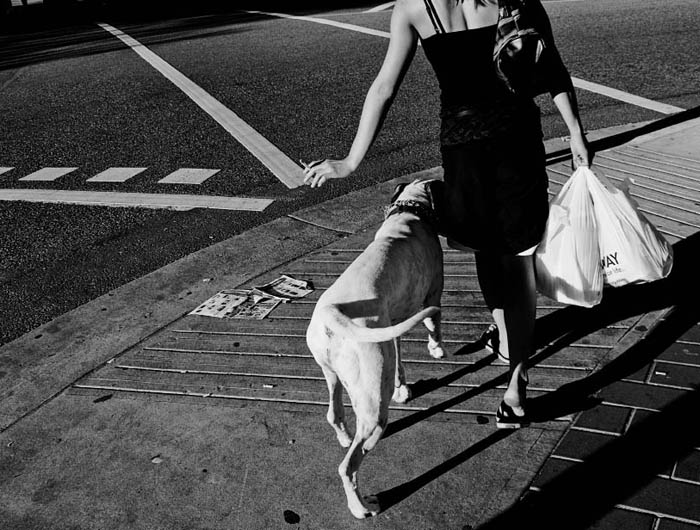
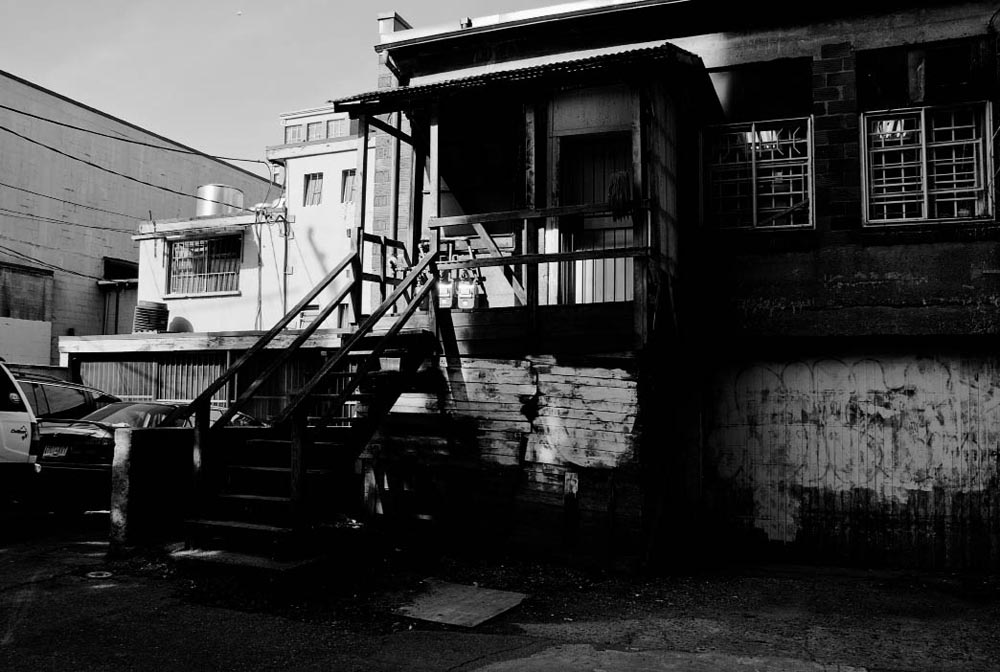
Every August, Cates Park, on a beautiful piece of Tsleil-Waututh land just off the waters of Indian Arm, is the home of Under the Volcano, Vancouvers annual day-long festival of music and left-wing politics, named in honour of Malcolm Lowrys book. Always a big draw, the festival invites artists, performers, and speakers from all over. In the summer of 2003, the organizers invited David Hilliard, one of the founding members of the Black Panther Party for Self-Defense; that summer, Hilliard was travelling with the Black Panther Fugitives, a hip hop act that included his son, and both Hilliard and the group were appearing on the main stage at UTV.
In the counter-hegemonic spirit of the festival, Hilliard and the Fugitives were given a chauffeur in the inversed-Driving-Miss-Daisy tradition: me. I had decided to break up the monotony of my summer (I was working as a groundskeeper for a housing complex in Port Moody) by volunteering for the festival, and the job I was given was to pick up the Fugitives from the house they were staying at in Strathcona, pick up David Hilliard from his hotel downtown, take them wherever they wanted to go for a few hours (the younger men wanted desperately to see Vansterdam; the elder was patient), then drive them out to the North Shore in time for their events. We had a great day.
At one point, one of the rappers took a cell phone call from his girlfriend, and I could piece together everything she was asking about Vancouver from listening to his half of the conversation, like a Bob Newhart telephone sketch. I could tell exactly when their relatively mundane chat about the flight, the groups sleeping arrangements, and how pretty the city was turned to demographics: Huh? Oh. Like, none, he laughed. I mean none. Its like, one percent of the population. In a way, he wasnt that far off. In fact, 1.1 percent of Metro Vancouverites identify as ethnically African (when allowed to claim more than one ethnic origin), and 5.6 percent identify as Caribbean. But Vancouvers famous lack of blacknessthe subject of countless punchlines and the first observation offered by any politically incorrect visitor from Toronto or Montral or the Statesis generally overstated. Of the nearly half of Vancouver that is non-white, 2.4 percent is black, as compared with the 2.6 percent that is Latin American and the 2.9 percent that is Japanese; [] And yet, if you were to ask people inside or outside the city, they would likely identify Vancouver as being very Japanese and not black at all (despite, for one example, the long string of Afro Hair Salons, and Caribbean and Ethiopian restaurants along Commercial Drive). Admittedly, the city hosts a lot of Japanese exchange students who wouldnt be a part of the census, and Im sure a lot of Korean and Chinese and Filipinos have been entered into the inexpert, anecdotal censuses conducted by white Vancouverites observing the city. Even still, to paraphrase a writer who knew something about the ironies of race, it seems that the reports of the citys Afro-anemia are greatly exaggerated.
My friend Adam Rudder, an academic whose thesis examined this very invisibility of Vancouvers black population, opened his study with this paradox: In a population dominated by white immigrants of British descent, the small black population was hard to miss on the streets or in the places of work or recreation where they might be encountered. And yet, this community so visibly marked by their skin colour is almost entirely invisible in the histories and historical records of the city. []
He goes on to argue that that invisibility was not an accident, or a result of the small numbers of black residents, but, rather, a predictable outcome of settler colonial histories and a tactic used by black residents in order to avoid aggressive white hostility. []
Invisibility is a poignant choice of words: think how many times you hear Joe Fortes in Vancouverin the names of West End restaurants, libraries, community buildingsversus the number of times that you see the mans picture. I was in my early twenties before I learned that Joe Fortes wasnt a Mediterranean or a Romantic (the mental picture I had of Joe Fortes was a hawk-nosed man with thick, straight white hair combed back) but was, in fact, a barrel-chested, moustachioed, dark-skinned Barbadian. And for a city full of people who cant wait to tell you what buildings
Font size:
Interval:
Bookmark:
Similar books «Vancouver Special»
Look at similar books to Vancouver Special. We have selected literature similar in name and meaning in the hope of providing readers with more options to find new, interesting, not yet read works.
Discussion, reviews of the book Vancouver Special and just readers' own opinions. Leave your comments, write what you think about the work, its meaning or the main characters. Specify what exactly you liked and what you didn't like, and why you think so.

